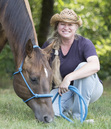Elena Hartwell's Blog, page 74
October 22, 2017
Hart Hanson, Kellye Garrett, and Roger Johns Discuss Their Debut Novels
I'm going to continue interviewing International Thriller Writers' Debut Authors, but I'm changing up the format. I'm going to include multiple authors in each post, giving readers an even greater opportunity for finding new authors. I'm thrilled to launch this new format with three exciting debut authors: Hart Hanson, Kellye Garrett, and Rodger Johns.
HART HANSON
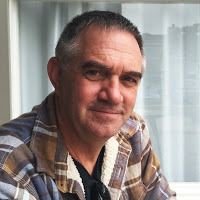 Hart Hanson is best known for his Television writing, including "Bones," which he created, produced, and wrote from 2005 to 2017.
Hart Hanson is best known for his Television writing, including "Bones," which he created, produced, and wrote from 2005 to 2017.
(For the record, I'm a big fan of anything that includes David Boreanaz. I met him once and managed to get out the words, "Great shoes." I hope that was a memorable experience for David as well.)
Now a debut novelist, Hart's first novel The Driver, launched August, 8, from Dutton. Learn more about Hart online with the following links: Twitter and Facebook
THE INTERVIEW
What is one of your favorite elements in your debut novel?
I found I became quite fond of my main character's father—Abel Skellig. First of all, he shouldered his way in and demanded an entire chapter that had nothing to do with the plot but a lot to do with the childhood character development of the protagonist, Michael Skellig. I was delighted that Abel appeared later and lived up to his son's view of him. (I love this! Eddie's mother Chava is one of my favorite elements of my debut)
What led you to writing your first novel?
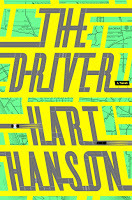 I've been a television writer for decades. I had a network show ("Bones") that ran on Fox for twelve seasons and I found that I wanted to stop doing TV for a while and take a look at the world. But, you know how it is, a writer writes. After a few days of not writing I was filled with self-loathing so I went through the "Bin of Ideas" I have on my computer and found the idea for a limo driver who is the type of guy who engages in life even when he shouldn't. I started writing in longhand (which I've never done in scripts) and a year later I had a book.
I've been a television writer for decades. I had a network show ("Bones") that ran on Fox for twelve seasons and I found that I wanted to stop doing TV for a while and take a look at the world. But, you know how it is, a writer writes. After a few days of not writing I was filled with self-loathing so I went through the "Bin of Ideas" I have on my computer and found the idea for a limo driver who is the type of guy who engages in life even when he shouldn't. I started writing in longhand (which I've never done in scripts) and a year later I had a book.
What are you working on now?
I have a few TV projects at various levels of development ... but I've also started the second Skellig novel in the hope that somebody might want to know what happens to him and his friends next.
KELLYE GARRETT
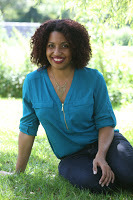 Kellye Garrett spent eight years working in Hollywood, including a stint writing for Cold Case.
Kellye Garrett spent eight years working in Hollywood, including a stint writing for Cold Case.
(I'm also a fan of Cold Case, but I never complimented any of the stars' shoes...)
A former magazine editor, she holds a BS in magazine writing from Florida A&M and an MFA in screenwriting from USC’s famed film school.
Hollywood Homicide is her first novel. To learn more about Kellye, visit her online through the following links: Twitter, Facebook, Instagram
THE INTERVIEW
What is one of your favorite elements in your debut novel?
My favorite element of my book is definitely my last line. I knew what I'd write even before I had most of the story figured out. It’s literally just one word and I've refused to change it the few times folks suggested I do so. I love it for a variety of reasons: It sets up a bit of a cliffhanger. It sums up my main character Dayna's emotions in just one word and the severity of how she’s feeling. And finally, Dayna and I are pretty similar. We're both super sarcastic black chicks. However, we differ in one key way. And that difference is a constant struggle for me to write. So the ending is my lone shout-out to me writing how I would handle the situation. (This totally made me buy the book!)
What led you to writing your first novel?
Short version: being broke. Long version: At the time I was a semi-successful, mega broke television writer. I was driving down the street in Los Angeles one day and saw a billboard offering a reward for information on a murder. My first thought was, "I should try to solve it for the money." Of course, that was a horrible idea for real life but it turned out to be a great idea for a book.
What are you working on now?
I just finished book 2 in the Detective by Day series. It's called Hollywood Ending and it'll be out next summer. I'm starting Book 3 and have no clue what I'm writing. So please send good vibes and chocolate asap. (A woman after my own heart ...)
ROGER JOHNS
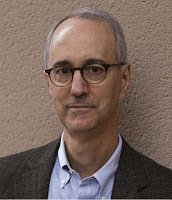 Roger Johns
is a former corporate lawyer and retired college professor with law degrees from Louisiana State University and Boston University.
Roger Johns
is a former corporate lawyer and retired college professor with law degrees from Louisiana State University and Boston University.
During his nearly two decades as a professor, he served on the editorial staffs of several academic publications and he won numerous awards and recognitions for his teaching and his scholarly writing. Roger was born and raised in Louisiana. He and his wife Julie now live in Georgia. Dark River Rising is his first novel.
You can visit Roger by clicking on the following links: on his website, Twitter, and his blog.
THE INTERVIEW
What is one of your favorite elements in your debut novel?
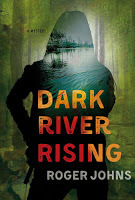 Wallace Hartman, the main character in my debut novel DARK RIVER RISING, is my favorite element in the book. Wallace, a homicide detective in Baton Rouge, LA, is confronted with a horrifying murder, and she must discover not only the ‘who’ behind the crime, but the ‘why’, as well. Both discoveries will prove costly. The reason I like her so much is that she is an aspirational personality, for me. It wasn’t until after I had finished the book and had a chance to see it from a bit of temporal distance that I realized I had projected a lot of traits on to her that I wished I possessed (or possessed in greater abundance) myself.
Wallace Hartman, the main character in my debut novel DARK RIVER RISING, is my favorite element in the book. Wallace, a homicide detective in Baton Rouge, LA, is confronted with a horrifying murder, and she must discover not only the ‘who’ behind the crime, but the ‘why’, as well. Both discoveries will prove costly. The reason I like her so much is that she is an aspirational personality, for me. It wasn’t until after I had finished the book and had a chance to see it from a bit of temporal distance that I realized I had projected a lot of traits on to her that I wished I possessed (or possessed in greater abundance) myself.
Like all of us, she carries the weight of her trials and tribulations and mistakes, but she does so with a great deal more grace than I can seem to muster. And she’s at ease with fact that she must do the things that her life and her career demand of her. While she does not welcome all the challenges things, she doesn’t whine or shy away, either. Nor does she make more of herself than she is. When it’s time to be steely, she is. When it’s time fight, she soldiers-up and enters the battle. But she also has a well-developed sense of humor. And like most of us, she has a tender side which, to my way of thinking, is the most powerful part of her personality because when she exposes it, it leaves her open to great joy, while it also leaves her quite vulnerable––but she’s not afraid. (I love a protagonist with a sense of humor!)
What led you to writing your first novel?
The initial catalyst for the first book was a question that just popped into my head, one day, about why the South American cocaine cartels operate the way they do. After a little bit of exploration into that topic, I realized it might be a good premise for a crime novel. However, the chasm between that realization and a presentable manuscript was deep and wide. Even after a series of rather frustrating false starts, however, I could not make the idea go away. Eventually, I figured out the proper way to tell the story. It turned out to be a story about Wallace Hartman, my main character, and not a story about the ‘business practice’ I had been ruminating about for so long. So, that initial idea turned out to be a way to write about a character I’ve developed a great affinity for. And this is another big reason she’s my favorite part of the book––without her, there would be no book.
What are you working on now?
The second Wallace Hartman mystery is in formal edits, and I’m hard at work on the third. In the second book, Wallace is dealing with a murder that implicates race and politics. And, in the third book, Wallace journeys deep into the darkest, ugliest, most dangerous side of the human species. I think I’ll just leave book three hanging there, for the time being. (I'm hooked!)
HART HANSON
 Hart Hanson is best known for his Television writing, including "Bones," which he created, produced, and wrote from 2005 to 2017.
Hart Hanson is best known for his Television writing, including "Bones," which he created, produced, and wrote from 2005 to 2017. (For the record, I'm a big fan of anything that includes David Boreanaz. I met him once and managed to get out the words, "Great shoes." I hope that was a memorable experience for David as well.)
Now a debut novelist, Hart's first novel The Driver, launched August, 8, from Dutton. Learn more about Hart online with the following links: Twitter and Facebook
THE INTERVIEW
What is one of your favorite elements in your debut novel?
I found I became quite fond of my main character's father—Abel Skellig. First of all, he shouldered his way in and demanded an entire chapter that had nothing to do with the plot but a lot to do with the childhood character development of the protagonist, Michael Skellig. I was delighted that Abel appeared later and lived up to his son's view of him. (I love this! Eddie's mother Chava is one of my favorite elements of my debut)
What led you to writing your first novel?
 I've been a television writer for decades. I had a network show ("Bones") that ran on Fox for twelve seasons and I found that I wanted to stop doing TV for a while and take a look at the world. But, you know how it is, a writer writes. After a few days of not writing I was filled with self-loathing so I went through the "Bin of Ideas" I have on my computer and found the idea for a limo driver who is the type of guy who engages in life even when he shouldn't. I started writing in longhand (which I've never done in scripts) and a year later I had a book.
I've been a television writer for decades. I had a network show ("Bones") that ran on Fox for twelve seasons and I found that I wanted to stop doing TV for a while and take a look at the world. But, you know how it is, a writer writes. After a few days of not writing I was filled with self-loathing so I went through the "Bin of Ideas" I have on my computer and found the idea for a limo driver who is the type of guy who engages in life even when he shouldn't. I started writing in longhand (which I've never done in scripts) and a year later I had a book.What are you working on now?
I have a few TV projects at various levels of development ... but I've also started the second Skellig novel in the hope that somebody might want to know what happens to him and his friends next.
KELLYE GARRETT
 Kellye Garrett spent eight years working in Hollywood, including a stint writing for Cold Case.
Kellye Garrett spent eight years working in Hollywood, including a stint writing for Cold Case.
(I'm also a fan of Cold Case, but I never complimented any of the stars' shoes...)
A former magazine editor, she holds a BS in magazine writing from Florida A&M and an MFA in screenwriting from USC’s famed film school.
Hollywood Homicide is her first novel. To learn more about Kellye, visit her online through the following links: Twitter, Facebook, Instagram
THE INTERVIEW
What is one of your favorite elements in your debut novel?
My favorite element of my book is definitely my last line. I knew what I'd write even before I had most of the story figured out. It’s literally just one word and I've refused to change it the few times folks suggested I do so. I love it for a variety of reasons: It sets up a bit of a cliffhanger. It sums up my main character Dayna's emotions in just one word and the severity of how she’s feeling. And finally, Dayna and I are pretty similar. We're both super sarcastic black chicks. However, we differ in one key way. And that difference is a constant struggle for me to write. So the ending is my lone shout-out to me writing how I would handle the situation. (This totally made me buy the book!)
What led you to writing your first novel?
Short version: being broke. Long version: At the time I was a semi-successful, mega broke television writer. I was driving down the street in Los Angeles one day and saw a billboard offering a reward for information on a murder. My first thought was, "I should try to solve it for the money." Of course, that was a horrible idea for real life but it turned out to be a great idea for a book.
What are you working on now?
I just finished book 2 in the Detective by Day series. It's called Hollywood Ending and it'll be out next summer. I'm starting Book 3 and have no clue what I'm writing. So please send good vibes and chocolate asap. (A woman after my own heart ...)
ROGER JOHNS
 Roger Johns
is a former corporate lawyer and retired college professor with law degrees from Louisiana State University and Boston University.
Roger Johns
is a former corporate lawyer and retired college professor with law degrees from Louisiana State University and Boston University.
During his nearly two decades as a professor, he served on the editorial staffs of several academic publications and he won numerous awards and recognitions for his teaching and his scholarly writing. Roger was born and raised in Louisiana. He and his wife Julie now live in Georgia. Dark River Rising is his first novel.
You can visit Roger by clicking on the following links: on his website, Twitter, and his blog.
THE INTERVIEW
What is one of your favorite elements in your debut novel?
 Wallace Hartman, the main character in my debut novel DARK RIVER RISING, is my favorite element in the book. Wallace, a homicide detective in Baton Rouge, LA, is confronted with a horrifying murder, and she must discover not only the ‘who’ behind the crime, but the ‘why’, as well. Both discoveries will prove costly. The reason I like her so much is that she is an aspirational personality, for me. It wasn’t until after I had finished the book and had a chance to see it from a bit of temporal distance that I realized I had projected a lot of traits on to her that I wished I possessed (or possessed in greater abundance) myself.
Wallace Hartman, the main character in my debut novel DARK RIVER RISING, is my favorite element in the book. Wallace, a homicide detective in Baton Rouge, LA, is confronted with a horrifying murder, and she must discover not only the ‘who’ behind the crime, but the ‘why’, as well. Both discoveries will prove costly. The reason I like her so much is that she is an aspirational personality, for me. It wasn’t until after I had finished the book and had a chance to see it from a bit of temporal distance that I realized I had projected a lot of traits on to her that I wished I possessed (or possessed in greater abundance) myself. Like all of us, she carries the weight of her trials and tribulations and mistakes, but she does so with a great deal more grace than I can seem to muster. And she’s at ease with fact that she must do the things that her life and her career demand of her. While she does not welcome all the challenges things, she doesn’t whine or shy away, either. Nor does she make more of herself than she is. When it’s time to be steely, she is. When it’s time fight, she soldiers-up and enters the battle. But she also has a well-developed sense of humor. And like most of us, she has a tender side which, to my way of thinking, is the most powerful part of her personality because when she exposes it, it leaves her open to great joy, while it also leaves her quite vulnerable––but she’s not afraid. (I love a protagonist with a sense of humor!)
What led you to writing your first novel?
The initial catalyst for the first book was a question that just popped into my head, one day, about why the South American cocaine cartels operate the way they do. After a little bit of exploration into that topic, I realized it might be a good premise for a crime novel. However, the chasm between that realization and a presentable manuscript was deep and wide. Even after a series of rather frustrating false starts, however, I could not make the idea go away. Eventually, I figured out the proper way to tell the story. It turned out to be a story about Wallace Hartman, my main character, and not a story about the ‘business practice’ I had been ruminating about for so long. So, that initial idea turned out to be a way to write about a character I’ve developed a great affinity for. And this is another big reason she’s my favorite part of the book––without her, there would be no book.
What are you working on now?
The second Wallace Hartman mystery is in formal edits, and I’m hard at work on the third. In the second book, Wallace is dealing with a murder that implicates race and politics. And, in the third book, Wallace journeys deep into the darkest, ugliest, most dangerous side of the human species. I think I’ll just leave book three hanging there, for the time being. (I'm hooked!)
Published on October 22, 2017 13:36
October 14, 2017
Bruce Robert Coffin on Homicide Investigation, Novel Writing, and Working with the FBI
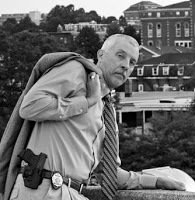 This week I'm hanging out with novelist Bruce Robert Coffin. Bruce is the bestselling author of the Detective Byron mystery series and former detective sergeant with more than twenty-seven years in law enforcement.
This week I'm hanging out with novelist Bruce Robert Coffin. Bruce is the bestselling author of the Detective Byron mystery series and former detective sergeant with more than twenty-seven years in law enforcement.
At the time of his retirement, from the Portland, Maine police department, he supervised all homicide and violent crime investigations for Maine's largest city. Bruce also spent four years working counter-terrorism with the FBI, where he earned the Director's Award, the highest honor a non-agent can receive.
THE INTERVIEW
Before launching your writing career, you worked in law enforcement for twenty-seven years. With that incredible base of knowledge, did you find yourself staying completely accurate to police procedure? Or did you take any liberties for the story? What was difficult about knowing the real world of law enforcement so well?
I try to incorporate as much reality as possible into my novels so that they read true to folks in the law enforcement field and to those with no experience whatsoever. That said I will take liberties for the sake of good storytelling. For example it would be rather tough to build excitement if I made John Byron or Diane Joyner wait a year or more for a DNA comparison. (That would slow the pace a bit! I’m always amazed when I interview experts how long things take in the real world.)
 As a Maine writer, how does your geography impact you?
As a Maine writer, how does your geography impact you? I think there's just something about Maine that makes for good mystery writing. It's a huge area with a relatively small population. People love to say it’s a small world. Maine quite literally is a small world where everybody knows everybody else. That closeness and familiarity can create great motives for murder. Plus as a mystery author it's fun to create chaos in the midst of Maine's tranquility. (And such a beautiful state!)
In your first Detective Sergeant John Byron novel, your victim is a police officer, in the second it's a lawyer, so you went with people who have careers that intersect with criminals. What made you choose those two professions for your victims?
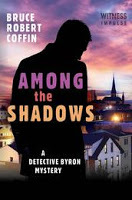 I’m not sure it was a conscious decision to pick intersecting careers as much as a desire to explore societal opinions about those two professions. All of my stories are scooped out of the primordial ooze of what if. In the first John Byron Mystery,
Among the Shadows
, I wanted to tell the tale of a modern day investigator confronted with the unenviable task of delving into his own father’s past and uncovering secrets that were buried long ago.
I’m not sure it was a conscious decision to pick intersecting careers as much as a desire to explore societal opinions about those two professions. All of my stories are scooped out of the primordial ooze of what if. In the first John Byron Mystery,
Among the Shadows
, I wanted to tell the tale of a modern day investigator confronted with the unenviable task of delving into his own father’s past and uncovering secrets that were buried long ago. In the second novel, Beneath the Depths , I set out to paint a picture of what it’s like to try and solve a murder when the victim is a despicable person. As I often tell people, police officers aren’t allowed the luxury of picking and choosing which homicides to investigate. Many homicide victims become victims as a result of their own vices and lifestyles. In cases like the Ramsey murder, detectives have to constantly remind themselves that no matter how bad the victim was there is still someone worse out there. The killer. (Great point. I’ve never heard it phrased that way, “there’s someone worse out there” … filing that one away! J)
In addition to the police force, after 9/11, you also worked alongside the FBI in counter-terrorism. How different was working with the FBI versus the police department?
Not as different as you might think, except for the travel. My FBI assignment dealt specifically with counter-terrorism (CT), which is of course very different from criminal investigations. Criminal cases are generally investigated after-the-fact, while CT cases are more intelligence based, directed toward uncovering or preventing a crime in the making. (A lot like mystery vs. thriller!)
But working with the FBI was just like working for my own department. Both agencies are comprised of the same type of men and women, people who want to make the world a safer place for everyone. I really enjoyed my time working with the FBI. Much like the PD, they treated me like family and I forged some lifetime friendships along the way.
Do you believe there is a "type" of person who goes into law enforcement? Are there characteristics that all police detectives/FBI etc. have? What makes the best detective? The best beat cop?
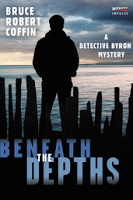 I think many people believe there is a certain type of person who goes into law enforcement as a career. After serving in that capacity for almost three decades, and coming into contact with thousands of officers, I can tell you that the only thing we all have in common is the desire to help others. It truly doesn’t matter if talking about beat cops or detectives, taking control of a bad situation and helping those who are unable to help themselves is what it’s all about. If you can see yourself doing that then law enforcement might be for you.
I think many people believe there is a certain type of person who goes into law enforcement as a career. After serving in that capacity for almost three decades, and coming into contact with thousands of officers, I can tell you that the only thing we all have in common is the desire to help others. It truly doesn’t matter if talking about beat cops or detectives, taking control of a bad situation and helping those who are unable to help themselves is what it’s all about. If you can see yourself doing that then law enforcement might be for you.What are you working on now?
At the moment I’m hard at work on the manuscript to Byron #3, tentatively titled BEYOND THE TRUTH. In this novel Byron will face his biggest challenges to date, both personally and professionally. It is my hope that this book will generate a lot of meaningful discussion.
Final words of wisdom:
And here I thought the last question would be the easiest. Stick with it. That’s the key to this business. Getting noticed is hard. There are many good writers out there already. Find something that you care enough to write about and then put your heart and soul into it. Repeat. That’s all there is to it. Work at it constantly. Tess Gerritsen once told me that writing novels is a marathon not a sprint. She’s absolutely right. If you’re not ready to put your heart and soul into it, then you’re not ready. Write on!
Great final words, Bruce. Great to have you here, I’m enjoying your first novel very much. Best of luck with the new book!
Published on October 14, 2017 00:00
October 8, 2017
Three Thriller Writers With Three New Novels: Hollie Overton, Pamela Crane, and JL Delozier
Just checking in with a couple fabulous mystery/thriller authors. Looking for some new twisty-turning thrill rides to read? Look no further than these three...
HOLLIE OVERTON
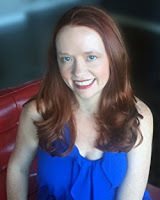 Hollie Overton
is an experienced TV writer currently working on the second season of Freeform’s “Shadowhunters.” She previously wrote for two seasons of Lifetime’s “The Client List,” and the final season of the CBS drama, “Cold Case.” A native of Kingsville, Texas, Hollie made her way to the Big Apple, where she studied acting at the American Academy of Dramatic Arts, Literature at Hunter College and mixology in Murray Hill.
Hollie Overton
is an experienced TV writer currently working on the second season of Freeform’s “Shadowhunters.” She previously wrote for two seasons of Lifetime’s “The Client List,” and the final season of the CBS drama, “Cold Case.” A native of Kingsville, Texas, Hollie made her way to the Big Apple, where she studied acting at the American Academy of Dramatic Arts, Literature at Hunter College and mixology in Murray Hill.
Convinced her talents lay in telling stories; Hollie set her sights on Hollywood. In 2008 Hollie was selected for the esteemed Warner Brother Writers Workshop. Her debut novel, Baby Doll was published in July 2016 and is an international best-seller. Hollie is repped by MetaMorphic Entertainment and WME.
THE WALLS By Hollie Overton
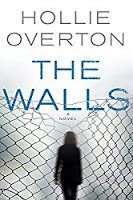 What if you could get away with murder?
What if you could get away with murder?
Single mom Kristy Tucker works as a press agent for the Texas Department of Corrections -- handling everything on death row from inmate interviews to chronicling the last moments during an execution. Her job exposes Kristy to the worst of humanity, and it's one that's beginning to take its toll.
So when Kristy meets Lance Dobson, her son's martial arts instructor, she believes she has finally found her happy ending. She's wrong.
Kristy soon discovers that Lance is a monster. Forced to endure his verbal and physical abuse, Kristy is serving her own life sentence...unless she's willing to take matters into her hands. Perfectly poised to exploit the criminal justice system she knows so well, Kristy sets out to get rid of Lance -- permanently.
The Walls explores domestic violence, the morality of murder, and how far one woman will go to protect her family.
PAMELA CRANE
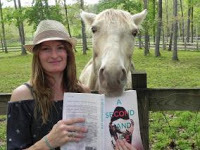 Pamela Crane
is a professional juggler. Not the type of juggler who can toss flaming torches in the air, but a juggler of four kids, a writing addiction, a horse rescuer, and a book editor by trade. She lives on the edge (ask her Arabian horse about that—he’ll tell you all about their wild adventures while trying to train him!) and she writes on the edge. Her characters and plots are her escape from the real world of dirty diapers and cleaning horse stalls, and she thrives off of an entertaining tale. Visit her at www.pamelacrane.com.
Pamela Crane
is a professional juggler. Not the type of juggler who can toss flaming torches in the air, but a juggler of four kids, a writing addiction, a horse rescuer, and a book editor by trade. She lives on the edge (ask her Arabian horse about that—he’ll tell you all about their wild adventures while trying to train him!) and she writes on the edge. Her characters and plots are her escape from the real world of dirty diapers and cleaning horse stalls, and she thrives off of an entertaining tale. Visit her at www.pamelacrane.com.
THE ART OF FEAR by Pamela Crane
A life no girl should endure. A father no daughter could love. A twist no one would predict.
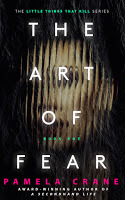 From award-winning author Pamela Crane comes a terrifying tale of small-town secrets and murder.
From award-winning author Pamela Crane comes a terrifying tale of small-town secrets and murder.
Ari Wilburn’s life ended long ago—the day she watched her little sister die in a tragic accident and did nothing to stop it. Crippled with self-blame and resented by her parents, she stumbles through life … and onto an unexpected clue that casts doubt on whether the death was accidental.
Now a psychological wreck, Ari joins a suicide support group where she meets Tina, a sex-enslaved escapee who finds her long-lost father dead. Suicide, police ruled it. But Tina suspects foul play. As a bond develops between the women in their shared loss, they’re dragged into playing a dangerous game with a killer.
Faced with a murderous wake-up call and two possibly linked deaths, Ari’s investigation puts her next on the killer’s list. But she’s never been one to back down from a fight.
Needing closure, Ari must face her demons and the killer behind them … or lose everything she loves.
JL DELOZIER
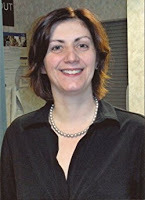 Dr. Jennifer Delozier submitted her first story, handwritten in pencil on lined school paper, to Isaac in six years, which was followed by the blur of internship, residency, and the launch of her medical career. But she never forgot her first love.
Dr. Jennifer Delozier submitted her first story, handwritten in pencil on lined school paper, to Isaac in six years, which was followed by the blur of internship, residency, and the launch of her medical career. But she never forgot her first love.
Asimov's magazine while still in junior high school. Several years later, she took a creative writing elective at Penn State University and was hooked. She received her BS and MD degrees
When she sat down to write her debut thriller, she spent some time rediscovering her favorite physician writers. From the deductive reasoning of Sir Arthur Conan Doyle to the cutting edge science of Michael Crichton, she remains inspired by facts that lie on the edge of reality: bizarre medical anomalies, new genetic discoveries and so on. These form the backbone of Type & Cross .
Dr. Delozier spent the early part of her career as a rural family doctor and then later as a government physician, caring for America’s veterans. She continues to practice medicine and lives in Pennsylvania with her husband and four rescue cats.
STORM SHELTER by JL Delozier
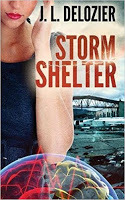 Dr. Persephone Smith is a psychologist with a genetic gift. Her enhanced empathy allows her to feel on a primal level the emotions of others, which helps with her job as a counselor for the Dept. of Veterans Affairs. But Seph’s gift comes with a price. Plagued by nightmares and insecure in her work, she absorbs the suffering of her patients by day and swills tequila by night.
Dr. Persephone Smith is a psychologist with a genetic gift. Her enhanced empathy allows her to feel on a primal level the emotions of others, which helps with her job as a counselor for the Dept. of Veterans Affairs. But Seph’s gift comes with a price. Plagued by nightmares and insecure in her work, she absorbs the suffering of her patients by day and swills tequila by night.
When Seph is deployed to an abandoned air hangar turned medical shelter during a massive hurricane, her worst nightmares come true. One by one, as the wind howls overhead, staff and evacuees disappear into the dark recesses of the vast space. The missing return as mutilated corpses. The living, trapped in the shrieking metal structure by the storm, descend into varying levels of paranoia and even madness. Seph must become both counselor and detective to determine who, or what, is calling them prey. Is the panic and mayhem just “shelter shock,” as the lead physician, Anne Parrish, insists? Or is everyone, Seph included, in danger of losing their minds—and their lives?
Storm Shelter is a prequel to 2016’s Type & Cross, which was recently nominated for a “Best First Novel” award by the International Thriller Writers organization. Though fiction, it’s based on my real-life experiences as a disaster physician and features a subtle homage to Alice in Wonderland woven throughout.
HOLLIE OVERTON
 Hollie Overton
is an experienced TV writer currently working on the second season of Freeform’s “Shadowhunters.” She previously wrote for two seasons of Lifetime’s “The Client List,” and the final season of the CBS drama, “Cold Case.” A native of Kingsville, Texas, Hollie made her way to the Big Apple, where she studied acting at the American Academy of Dramatic Arts, Literature at Hunter College and mixology in Murray Hill.
Hollie Overton
is an experienced TV writer currently working on the second season of Freeform’s “Shadowhunters.” She previously wrote for two seasons of Lifetime’s “The Client List,” and the final season of the CBS drama, “Cold Case.” A native of Kingsville, Texas, Hollie made her way to the Big Apple, where she studied acting at the American Academy of Dramatic Arts, Literature at Hunter College and mixology in Murray Hill.Convinced her talents lay in telling stories; Hollie set her sights on Hollywood. In 2008 Hollie was selected for the esteemed Warner Brother Writers Workshop. Her debut novel, Baby Doll was published in July 2016 and is an international best-seller. Hollie is repped by MetaMorphic Entertainment and WME.
THE WALLS By Hollie Overton
 What if you could get away with murder?
What if you could get away with murder?Single mom Kristy Tucker works as a press agent for the Texas Department of Corrections -- handling everything on death row from inmate interviews to chronicling the last moments during an execution. Her job exposes Kristy to the worst of humanity, and it's one that's beginning to take its toll.
So when Kristy meets Lance Dobson, her son's martial arts instructor, she believes she has finally found her happy ending. She's wrong.
Kristy soon discovers that Lance is a monster. Forced to endure his verbal and physical abuse, Kristy is serving her own life sentence...unless she's willing to take matters into her hands. Perfectly poised to exploit the criminal justice system she knows so well, Kristy sets out to get rid of Lance -- permanently.
The Walls explores domestic violence, the morality of murder, and how far one woman will go to protect her family.
PAMELA CRANE
 Pamela Crane
is a professional juggler. Not the type of juggler who can toss flaming torches in the air, but a juggler of four kids, a writing addiction, a horse rescuer, and a book editor by trade. She lives on the edge (ask her Arabian horse about that—he’ll tell you all about their wild adventures while trying to train him!) and she writes on the edge. Her characters and plots are her escape from the real world of dirty diapers and cleaning horse stalls, and she thrives off of an entertaining tale. Visit her at www.pamelacrane.com.
Pamela Crane
is a professional juggler. Not the type of juggler who can toss flaming torches in the air, but a juggler of four kids, a writing addiction, a horse rescuer, and a book editor by trade. She lives on the edge (ask her Arabian horse about that—he’ll tell you all about their wild adventures while trying to train him!) and she writes on the edge. Her characters and plots are her escape from the real world of dirty diapers and cleaning horse stalls, and she thrives off of an entertaining tale. Visit her at www.pamelacrane.com.
THE ART OF FEAR by Pamela Crane
A life no girl should endure. A father no daughter could love. A twist no one would predict.
 From award-winning author Pamela Crane comes a terrifying tale of small-town secrets and murder.
From award-winning author Pamela Crane comes a terrifying tale of small-town secrets and murder.Ari Wilburn’s life ended long ago—the day she watched her little sister die in a tragic accident and did nothing to stop it. Crippled with self-blame and resented by her parents, she stumbles through life … and onto an unexpected clue that casts doubt on whether the death was accidental.
Now a psychological wreck, Ari joins a suicide support group where she meets Tina, a sex-enslaved escapee who finds her long-lost father dead. Suicide, police ruled it. But Tina suspects foul play. As a bond develops between the women in their shared loss, they’re dragged into playing a dangerous game with a killer.
Faced with a murderous wake-up call and two possibly linked deaths, Ari’s investigation puts her next on the killer’s list. But she’s never been one to back down from a fight.
Needing closure, Ari must face her demons and the killer behind them … or lose everything she loves.
JL DELOZIER
 Dr. Jennifer Delozier submitted her first story, handwritten in pencil on lined school paper, to Isaac in six years, which was followed by the blur of internship, residency, and the launch of her medical career. But she never forgot her first love.
Dr. Jennifer Delozier submitted her first story, handwritten in pencil on lined school paper, to Isaac in six years, which was followed by the blur of internship, residency, and the launch of her medical career. But she never forgot her first love.Asimov's magazine while still in junior high school. Several years later, she took a creative writing elective at Penn State University and was hooked. She received her BS and MD degrees
When she sat down to write her debut thriller, she spent some time rediscovering her favorite physician writers. From the deductive reasoning of Sir Arthur Conan Doyle to the cutting edge science of Michael Crichton, she remains inspired by facts that lie on the edge of reality: bizarre medical anomalies, new genetic discoveries and so on. These form the backbone of Type & Cross .
Dr. Delozier spent the early part of her career as a rural family doctor and then later as a government physician, caring for America’s veterans. She continues to practice medicine and lives in Pennsylvania with her husband and four rescue cats.
STORM SHELTER by JL Delozier
 Dr. Persephone Smith is a psychologist with a genetic gift. Her enhanced empathy allows her to feel on a primal level the emotions of others, which helps with her job as a counselor for the Dept. of Veterans Affairs. But Seph’s gift comes with a price. Plagued by nightmares and insecure in her work, she absorbs the suffering of her patients by day and swills tequila by night.
Dr. Persephone Smith is a psychologist with a genetic gift. Her enhanced empathy allows her to feel on a primal level the emotions of others, which helps with her job as a counselor for the Dept. of Veterans Affairs. But Seph’s gift comes with a price. Plagued by nightmares and insecure in her work, she absorbs the suffering of her patients by day and swills tequila by night.When Seph is deployed to an abandoned air hangar turned medical shelter during a massive hurricane, her worst nightmares come true. One by one, as the wind howls overhead, staff and evacuees disappear into the dark recesses of the vast space. The missing return as mutilated corpses. The living, trapped in the shrieking metal structure by the storm, descend into varying levels of paranoia and even madness. Seph must become both counselor and detective to determine who, or what, is calling them prey. Is the panic and mayhem just “shelter shock,” as the lead physician, Anne Parrish, insists? Or is everyone, Seph included, in danger of losing their minds—and their lives?
Storm Shelter is a prequel to 2016’s Type & Cross, which was recently nominated for a “Best First Novel” award by the International Thriller Writers organization. Though fiction, it’s based on my real-life experiences as a disaster physician and features a subtle homage to Alice in Wonderland woven throughout.
Published on October 08, 2017 00:00
October 1, 2017
Bestselling Author, Allen Eskens on Writing, Publishing, and Movie Deals
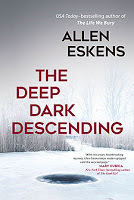
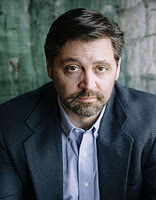 I'm thrilled to have award-winning novelist Allen Eskens join us on my blog today. Allen Eskens is the USA Today-bestselling author of The Life We Bury, The Guise of Another, and The Heavens May Fall. He is the recipient of the Barry Award, Minnesota Book Award, Rosebud Award, and the Silver Falchion Award and has been a finalist for the Edgar Award, Thriller Award, and the Anthony Award. His debut novel, The Life We Bury, has been published in 16 languages and is being developed for a feature film.
I'm thrilled to have award-winning novelist Allen Eskens join us on my blog today. Allen Eskens is the USA Today-bestselling author of The Life We Bury, The Guise of Another, and The Heavens May Fall. He is the recipient of the Barry Award, Minnesota Book Award, Rosebud Award, and the Silver Falchion Award and has been a finalist for the Edgar Award, Thriller Award, and the Anthony Award. His debut novel, The Life We Bury, has been published in 16 languages and is being developed for a feature film.
October 3, he launches his fourth novel, The Deep Dark Descending.
THE INTERVIEW
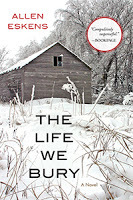 You started your writing career with a bang. The Life We Bury won three prestigious awards and was a finalist for four others along with multiple 5-star (and starred) reviews. How has that kind of pressure to succeed impacted you in your subsequent novels? Do you consider the success of each previous book as you're writing the next?
You started your writing career with a bang. The Life We Bury won three prestigious awards and was a finalist for four others along with multiple 5-star (and starred) reviews. How has that kind of pressure to succeed impacted you in your subsequent novels? Do you consider the success of each previous book as you're writing the next? I’m the kind of writer who has multiple projects percolating at any given moment. For example, I had my second book written and sold to my publisher before my first novel, The Life We Bury, hit the store shelves. As I write this, I am days away from turning in my fifth manuscript, two days later my fourth book will hit the market and I’ll be writing book number six. Because I am always casting forward, I can keep the pressure in check.
With that said, I have to say that I do feel driven to repeat as much of the success as I can with each new book. I try not to analyze too much because I want every novel to stand on its own merit. On a side note, I have to admit that having that kind of success on the debut novel gives me confidence to trust my instincts as I go forward.
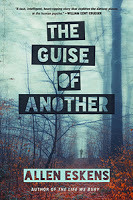 You write in both first person and third person point of view. What have you found to be the pros and cons of these? What made you choose one POV over another for each book?
You write in both first person and third person point of view. What have you found to be the pros and cons of these? What made you choose one POV over another for each book?My personal preference is to write in first person. I feel that I can get deeper into the character’s mind and heart in first person. When I write in third person, it’s because I want to tell a story from more than one point of view. I know a number of writers who will mix first and third points of view in a single story, and it’s been done well by a few. I haven’t tried that because I haven’t yet written a story that invites it.
Location is an important aspect in your work. Whether you are showing us the streets of Minneapolis, small-town Minnesota or the interior of a courtroom, place comes through like a character. Is that something that comes naturally to you as you write? Or do you consciously spend time working on creating both atmosphere and detail?
I love describing my scenes. One of the things that I do in my first revision is to look at my scene descriptions and ask myself if I can make them better. I sometimes think of revision like walking across a field of deep snow. It takes effort to make that first crossing (the first draft) and when I turn around to cross again, my inclination is to walk in the same path that I’ve already cut. It’s easier than walking through fresh snow. So I force myself to look at passages that seem just fine, maybe even good, and make them better. If I can, I will visit the places in my books. This helps me engage all five senses, not just the sense of sight (which seems to be the default sense of my imagination). (Great analogy. I’m writing the first draft of my next book right now, I’m going to apply this to my own work!)
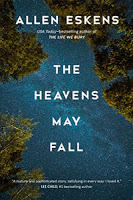 You've recently retired from a law career to write full time. Was that a tough transition? Any surprises or challenges in making that shift?
You've recently retired from a law career to write full time. Was that a tough transition? Any surprises or challenges in making that shift?I am happy to be a writer. I practiced law for twenty-five years, all the while wishing that I could quit and write novels. I started studying creative writing as soon as I passed the bar exam. I played around with it for twenty years before I got serious and wrote my first novel. I never expected to be able to retire from my law practice this soon after publishing my first novel, and I consider myself to be very fortunate on that score.
What do you wish interviewers would ask you that they never do?
The question that I hope to get asked and never get asked is: What did the fish say when he swam into a wall. The answer of course is, “Dam!” (Ah ha ha ha, okay, Allen, I laughed out loud when I read this) With that said, on a writing level I don’t think it’s a question I would like to share, but a quote. I studied writing in my free time for 20 years before I sat down to write The Life We Bury. When I finally took the bull by the horns and got serious about getting published and doing this for a living, there was this quote by Maria Rainer Rilke that inspired me. It reads:
[A]sk yourself in the most silent hour of your night: must I write? Dig into yourself for a deep answer. And if this answer rings out in assent, if you meet this solemn question with a strong, simple “I must,” then build your life in accordance with this necessity; your whole life, even into its humblest and most indifferent hour, must become a sign and witness to this impulse.
(Great quote. Printing this out now…)
What are you working on now?
As I write this, I am five days away from the launch of my fourth novel, The Deep Dark Descending, and four days away from turning in my fifth manuscript to my editor.
The Deep Dark Descending is the end of a three-book character arc for my character, Max Rupert. Book five, which is as yet untitled, but will be out sometime in 2018, is the sequel to my debut novel, The Life We Bury. (Now I’m really excited about book five)
Final words of wisdom:
The word of wisdom I would impart is EVOKE. As writers, we are artists. As artists, we should be looking for every opportunity to evoke as we write: evoke emotion, evoke understanding. Writing should be about more than simply telling a story. We have the attention of the reader for a brief time, and we should make the most of it. I write mysteries, but all my stories deal with character plots that hopefully touch the reader. I want to address deeper themes like guilt, or forgiveness, or tug-of-war between justice and revenge. I see my mystery plots as a vehicle to move the story forward. However, it’s the personal journey of the characters within that mystery that will ultimately engage the reader on a deeper level. That’s the goal at least.
Great word. Thanks again for joining me this week on Arc of a Writer. I hope you’ll join us again next year for book five!
Published on October 01, 2017 00:00
Bestselling Author Allen Eskens on Writing, Publishing, and Movie Deals

 I'm thrilled to have award-winning novelist Allen Eskens join us on my blog today. Allen Eskens is the USA Today-bestselling author of The Life We Bury, The Guise of Another, and The Heavens May Fall. He is the recipient of the Barry Award, Minnesota Book Award, Rosebud Award, and the Silver Falchion Award and has been a finalist for the Edgar Award, Thriller Award, and the Anthony Award. His debut novel, The Life We Bury, has been published in 16 languages and is being developed for a feature film.
I'm thrilled to have award-winning novelist Allen Eskens join us on my blog today. Allen Eskens is the USA Today-bestselling author of The Life We Bury, The Guise of Another, and The Heavens May Fall. He is the recipient of the Barry Award, Minnesota Book Award, Rosebud Award, and the Silver Falchion Award and has been a finalist for the Edgar Award, Thriller Award, and the Anthony Award. His debut novel, The Life We Bury, has been published in 16 languages and is being developed for a feature film.
October 3, he launches his fourth novel, The Deep Dark Descending.
THE INTERVIEW
 You started your writing career with a bang. The Life We Bury won three prestigious awards and was a finalist for four others along with multiple 5-star (and starred) reviews. How has that kind of pressure to succeed impacted you in your subsequent novels? Do you consider the success of each previous book as you're writing the next?
You started your writing career with a bang. The Life We Bury won three prestigious awards and was a finalist for four others along with multiple 5-star (and starred) reviews. How has that kind of pressure to succeed impacted you in your subsequent novels? Do you consider the success of each previous book as you're writing the next? I’m the kind of writer who has multiple projects percolating at any given moment. For example, I had my second book written and sold to my publisher before my first novel, The Life We Bury, hit the store shelves. As I write this, I am days away from turning in my fifth manuscript, two days later my fourth book will hit the market and I’ll be writing book number six. Because I am always casting forward, I can keep the pressure in check.
With that said, I have to say that I do feel driven to repeat as much of the success as I can with each new book. I try not to analyze too much because I want every novel to stand on its own merit. On a side note, I have to admit that having that kind of success on the debut novel gives me confidence to trust my instincts as I go forward.
 You write in both first person and third person point of view. What have you found to be the pros and cons of these? What made you choose one POV over another for each book?
You write in both first person and third person point of view. What have you found to be the pros and cons of these? What made you choose one POV over another for each book?My personal preference is to write in first person. I feel that I can get deeper into the character’s mind and heart in first person. When I write in third person, it’s because I want to tell a story from more than one point of view. I know a number of writers who will mix first and third points of view in a single story, and it’s been done well by a few. I haven’t tried that because I haven’t yet written a story that invites it.
Location is an important aspect in your work. Whether you are showing us the streets of Minneapolis, small-town Minnesota or the interior of a courtroom, place comes through like a character. Is that something that comes naturally to you as you write? Or do you consciously spend time working on creating both atmosphere and detail?
I love describing my scenes. One of the things that I do in my first revision is to look at my scene descriptions and ask myself if I can make them better. I sometimes think of revision like walking across a field of deep snow. It takes effort to make that first crossing (the first draft) and when I turn around to cross again, my inclination is to walk in the same path that I’ve already cut. It’s easier than walking through fresh snow. So I force myself to look at passages that seem just fine, maybe even good, and make them better. If I can, I will visit the places in my books. This helps me engage all five senses, not just the sense of sight (which seems to be the default sense of my imagination). (Great analogy. I’m writing the first draft of my next book right now, I’m going to apply this to my own work!)
 You've recently retired from a law career to write full time. Was that a tough transition? Any surprises or challenges in making that shift?
You've recently retired from a law career to write full time. Was that a tough transition? Any surprises or challenges in making that shift?I am happy to be a writer. I practiced law for twenty-five years, all the while wishing that I could quit and write novels. I started studying creative writing as soon as I passed the bar exam. I played around with it for twenty years before I got serious and wrote my first novel. I never expected to be able to retire from my law practice this soon after publishing my first novel, and I consider myself to be very fortunate on that score.
What do you wish interviewers would ask you that they never do?
The question that I hope to get asked and never get asked is: What did the fish say when he swam into a wall. The answer of course is, “Dam!” (Ah ha ha ha, okay, Allen, I laughed out loud when I read this) With that said, on a writing level I don’t think it’s a question I would like to share, but a quote. I studied writing in my free time for 20 years before I sat down to write The Life We Bury. When I finally took the bull by the horns and got serious about getting published and doing this for a living, there was this quote by Maria Rainer Rilke that inspired me. It reads:
[A]sk yourself in the most silent hour of your night: must I write? Dig into yourself for a deep answer. And if this answer rings out in assent, if you meet this solemn question with a strong, simple “I must,” then build your life in accordance with this necessity; your whole life, even into its humblest and most indifferent hour, must become a sign and witness to this impulse.
(Great quote. Printing this out now…)
What are you working on now?
As I write this, I am five days away from the launch of my fourth novel, The Deep Dark Descending, and four days away from turning in my fifth manuscript to my editor.
The Deep Dark Descending is the end of a three-book character arc for my character, Max Rupert. Book five, which is as yet untitled, but will be out sometime in 2018, is the sequel to my debut novel, The Life We Bury. (Now I’m really excited about book five)
Final words of wisdom:
The word of wisdom I would impart is EVOKE. As writers, we are artists. As artists, we should be looking for every opportunity to evoke as we write: evoke emotion, evoke understanding. Writing should be about more than simply telling a story. We have the attention of the reader for a brief time, and we should make the most of it. I write mysteries, but all my stories deal with character plots that hopefully touch the reader. I want to address deeper themes like guilt, or forgiveness, or tug-of-war between justice and revenge. I see my mystery plots as a vehicle to move the story forward. However, it’s the personal journey of the characters within that mystery that will ultimately engage the reader on a deeper level. That’s the goal at least.
Great word. Thanks again for joining me this week on Arc of a Writer. I hope you’ll join us again next year for book five!
Published on October 01, 2017 00:00
September 24, 2017
Brian Klingborg: Small Town Murder, Big Time Thriller
 This week's interview is with ITW debut author Brian Klingborg.
This week's interview is with ITW debut author Brian Klingborg.
THE AUTHOR
Brian Klingborg works in the educational publishing field. He’s written books on Kung Fu, and he wrote for the Winx Club television series. Kill Devil Falls is his first novel. He lives in New York City.
You can find Brian on Twitter
THE INTERVIEW
You wrote non-fiction books before you turned your skills to your first novel. How did that process differ for you?
The main difference between writing non-fiction and fiction is, of course, you can’t just make stuff up for non-fiction!
My first non-fiction book was on the Chinese martial arts. I wrote it as an homage to my teacher, Lai Hung. In his youth, Lai Hung was a full-contact fighting champion, and famous throughout Asia, but he was relatively unknown in the West. I felt it was an injustice that he toiled away with a handful of students in relative obscurity, while many lesser talents had huge schools and lucrative instructional video deals.
Presenting factual information about kung fu was a challenge, however. There wasn’t much research material available in English, and even the Chinese sources were full of apocryphal tales and exaggerations. Secret techniques obtained from mysterious mountain-dwelling hermits. Abilities that bordered on the supernatural. That sort of thing. I did my best to separate the wheat from the chaff and in those cases where I included an anecdote that seemed too implausible to be true, I gave alternative interpretations.
But even when I write fiction, I do a ton of research. Cars, weapons, clothing, equipment, geography, architecture, flora and fauna, anything that features in the plot is looked up and verified. I recently completed writing a dark thriller set in 1901. I included 85 footnotes. So, even though my stories and characters are products of my imagination, I construct them on a framework of facts.
Tell us about your road to publication:
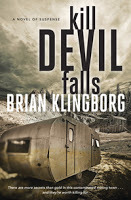 I spent many years confident that I would one day be a successful author without actually putting a single word on paper. When I finally got around to writing, I first tried my hand at screenplays. I had no industry contacts, and the screenplays weren’t very good anyway, but I managed to get a couple of minor producers interested in one of two of them. Of course, nothing came of it.
I spent many years confident that I would one day be a successful author without actually putting a single word on paper. When I finally got around to writing, I first tried my hand at screenplays. I had no industry contacts, and the screenplays weren’t very good anyway, but I managed to get a couple of minor producers interested in one of two of them. Of course, nothing came of it. After about ten years, I gave up on screenwriting and decided to write a novel. It took two years to finish the first one. I sent it to thirty agents. Only one responded. He suggested a number of revisions. I dutifully made them. And then the agent was like, naaah.
So, I dusted off an old screenplay, one that was designed to be filmed on a low-budget. I wanted something I could bang-out quickly. It still took me a year. I sent it out to another thirty agents, one of whom I had been referred to by a mutual friend. Guess which agent finally agreed to represent me? He sent the book to twelve or thirteen publishers. One offered an advance of $300. Another offered a little bit more (but not much). And thus, Kill Devil Falls was published by Midnight Ink last April.
You located your novel in a small, fictional town in the Sierra Nevada Mountains. You grew up in the San Joaquin Valley. You now live in New York City and have traveled extensively. How did your exposure to a variety of cultures and communities impact you as a writer?
 I suppose wherever I’ve lived, I’ve always felt like a bit of an outsider. I grew up in a small agricultural community. Most of my classmates knew from a young age what was waiting for them after school – the family farm or the military. As for me, I had no clue. I spent some time in Asia, where I stood out simply by virtue of being a Westerner. But the culture shock of living in a foreign land was nothing compared to what I felt when I moved to the northeast. People spoke with a strange accent and I couldn’t always understand what they were saying. You couldn’t get a glass of iced tea in November because it was seasonal. Restaurants served food like hoagies and grinders. If you wanted cold cuts, you went to a deli, and if you wanted toilet paper, you went to a market.
I suppose wherever I’ve lived, I’ve always felt like a bit of an outsider. I grew up in a small agricultural community. Most of my classmates knew from a young age what was waiting for them after school – the family farm or the military. As for me, I had no clue. I spent some time in Asia, where I stood out simply by virtue of being a Westerner. But the culture shock of living in a foreign land was nothing compared to what I felt when I moved to the northeast. People spoke with a strange accent and I couldn’t always understand what they were saying. You couldn’t get a glass of iced tea in November because it was seasonal. Restaurants served food like hoagies and grinders. If you wanted cold cuts, you went to a deli, and if you wanted toilet paper, you went to a market.But when you’re an outsider, you learn to observe. You watch people. What they’re wearing, how they talk, their interactions with one another. You take a mental note of what you see and hear, and file it away.
And that’s what writers do. They watch, they listen, they observe, and then they use that information to add color and authenticity to their work.
What does "rural noir" mean to you?
The word noir conjures up images of urban landscapes rendered in black and white, trench coats, seedy bars, dirty alleyways.
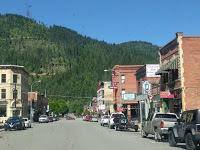 In contrast, we have the idealized small American town. Quaint, bucolic, folksy. Hard-working people making an honest living, attending church on Sundays, adhering to old-fashioned values.
In contrast, we have the idealized small American town. Quaint, bucolic, folksy. Hard-working people making an honest living, attending church on Sundays, adhering to old-fashioned values.Naturally, everyone expects to encounter bad behavior in a big city. Muggers, rapists, con-artists and killers. But small-town America is no stranger to sin. There is an ever-present undercurrent of violence, racism, lust and greed lurking beneath those green pastures and among those church pews.
For me, setting a noir thriller in a rural setting was a way to subvert the myth of small-town American wholesomeness. And to suggest that, in my cynical opinion, even in the most Mayberry, USA of towns, there’s a touch of Sodom and Gomorrah.
You wrote Kill Devil Falls in third person, multiple. What made you choose that POV?
I wrote Kill Devil Falls with multiple points of view in order to provide a window into each character’s motivations. I want readers to not necessarily agree with what the characters do, but to at least understand why they are doing it. To empathize with them on some level – even the villains.
What are you working on now?
Currently I’m working on a Neil Gaimanesque urban fantasy about a Taoist detective. It’s got Satanists! Black magic! Cannibals! Monster sex! Kung fu fighting!
Final words of wisdom:
Every successful writer has received dozens, if not hundreds, of rejections. Failure is just the universe’s way of separating real writers from people who thinkthey want to be writers. So, brew another pot of coffee and get back to work.
Published on September 24, 2017 00:00
September 17, 2017
David C Dawson: Journalist, Documentary Filmmaker, and Novelist from Across the Pond
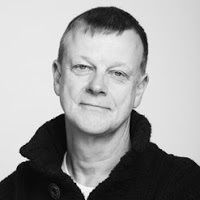 I love having authors from around the world join me on my blog. Today, I have ITW author David C. Dawson coming all the way from London!
I love having authors from around the world join me on my blog. Today, I have ITW author David C. Dawson coming all the way from London!
David is an award winning writer, journalist and video producer. The second book in his series The Dominic Delingpole Mysteries is published at the end of 2017. The first in the series, called The Necessary Deaths was released in November 2016. It's an award winner in the 2017 FAPA President’s Awards for Adult Suspense and Thrillers. His short story, Looking for George, is published in Love Wins, an anthology for the victims of the Orlando shootings.
THE INTERVIEW
Before writing your first novel, you worked as a journalist and made documentary films for television. How did those prepare you for writing a novel?
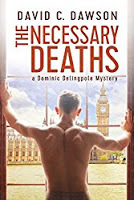 Working in a newsroom helped me in two ways. The first is deadlines! It’s a blessing and a curse in some ways, because I can work well to a deadline. But if I don’t have one, I tend to let things slide a bit…
Working in a newsroom helped me in two ways. The first is deadlines! It’s a blessing and a curse in some ways, because I can work well to a deadline. But if I don’t have one, I tend to let things slide a bit… The second benefit I gained from working in news, is that I can work anywhere. When you’re in a newsroom, or on location, it can be real noisy. I’m able to block out what’s going on around me and simply concentrate on the writing.
In addition to writing a gay novel series, you sing with the London Gay Men's Chorus. Your lifetime has seen a tremendous shift in how society views/accepts the LGBTQ community. How has that journey impacted you as a writer?
That’s so true. I can tell you a story that perfectly illustrates that. In May of this year, I went on tour with the London Gay Men’s Chorus to New York and Chicago. In Chicago, we were invited to sing at an elementary school in the suburbs. First we sang to the lower school, then did a workshop with the school choir about music and empowerment. Then we sang to the upper school. A few years ago, to have a gay choir perform in a school would have been unheard of. I spoke to the school’s music teacher, and asked her whether any parents had asked that their children not take part in the event.
“No!” She said. “Not a problem at all. Not only are there several LGBT members of staff at the school, but also a couple of students have same sex parents.”
That’s how far we’ve come.
The books I write are old fashioned mysteries, where the main characters happen to be gay. A lot of gay literature I’ve come across, concentrate on gay issues. It’s understandable, but they can present gay issues in a negative light. And I feel good about myself, and I want others to do so too.
You grew up in London, but have traveled to other countries, including spending time on tour in the US. Do you have a sense of any differences in your audiences between the US and the UK?
That’s a really difficult question. I think probably not. There are the obvious cultural issues I have to watch, such as different spellings, different styles of speaking, and cultural references that are too country specific to be readily understood. My editor at Dreamspinner Press is fantastic in helping me get that right. But story telling is universal.
I think European literature has benefited hugely from experimentation in the US. American writers seem to like to play with conventions, they try to break them, or distort them to create a specific literary effect. I love that. I’m still maybe overly cautious about breaking with convention, worried I’ll alienate readers.
Tell us about your path to publishing your first novel:
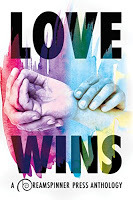 Long! Writing was therapy for me. I came out late in life, so when I did, writing was the obvious way to “let it all out”. I’ve been in a fabulous writing group for many years. Each month we write short stories for each other’s entertainment.
Long! Writing was therapy for me. I came out late in life, so when I did, writing was the obvious way to “let it all out”. I’ve been in a fabulous writing group for many years. Each month we write short stories for each other’s entertainment. A couple of people in the group were published and I thought, why not me? I don’t have a big novel burning inside me, and throughout my life I’ve written almost exclusively factual content, for news, documentaries, and magazine articles. But I’ve always loved detective stories. Which leads on to the next question…
What drew you to writing mysteries?
I love them! Well, detective stories mainly. When I was a child growing up in the UK, I used to devour the books of Enid Blyton. The Secret Seven and Famous Five series in particular. Then I moved on to Agatha Christie, Ruth Rendell and Dorothy L. Sayers. (All women writers, I’ve just noticed that. Elena says: I love that!) Being a scientist by background, I’m a Math graduate, I took some of my favourite authors’ books, and deconstructed them. Then I tried to imitate what they had achieved. As I wrote, I started to discover my own style. Of course, I’m still working on that. It takes a lifetime.
What are you working on now?
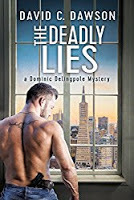 The Deadly Lies
is the second in the Dominic Delingpole series, and it’s out December 5. I’m just finishing off a romantic suspense for Dreamspinner Press which features two new lovers: an American living in London called Luke Diamond and a British journalist called Rupert Pendley-Evans. Meanwhile, I’m working on a script for a one-off drama about a woman raised by Christian fundamentalist parents, who escapes from an abusive environment to find happiness. It’s based on a true story I was told. (We were just talking about English/American expressions. I'd never heard "a one-off drama" before. David explained to me, it's a script for television written to be a stand alone, not a series.)
The Deadly Lies
is the second in the Dominic Delingpole series, and it’s out December 5. I’m just finishing off a romantic suspense for Dreamspinner Press which features two new lovers: an American living in London called Luke Diamond and a British journalist called Rupert Pendley-Evans. Meanwhile, I’m working on a script for a one-off drama about a woman raised by Christian fundamentalist parents, who escapes from an abusive environment to find happiness. It’s based on a true story I was told. (We were just talking about English/American expressions. I'd never heard "a one-off drama" before. David explained to me, it's a script for television written to be a stand alone, not a series.)Final words of wisdom:
Write! The biggest problem for writers is self editing. That little voice inside which keeps saying, “that’s not right, “that’s not any good”. If you listen to it, you’ll always stare at a blank page. Get the first draft out. It will be too long, wrongly structured, with unrealistic dialog. But you’ll have written it. Now it’s on the page, start editing. Edit and re-edit. The brilliant British writer Mark Haddon says that the majority of successful writers are actually not very good writers. But they are excellent editors of their own work.
I couldn't agree more, David. Thank you for spending time with us this week!
Published on September 17, 2017 00:00
September 10, 2017
Tracee de Hahn Talks Switzerland, Michael Connelly, and Where to Locate a Good Murder
Tracee de Hahn is my wonderful guest blogger this week. Tracee was a member of ITW's Debut Author program last year and is getting ready to release her second novel.
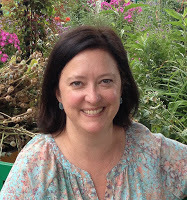 Tracee de Hahn is author of the Agnes Lüthi mysteries, which were inspired by her years living in Switzerland. Prior to writing full time she practiced architecture and was head of university alumni relations at a major west coast university. Currently she and her husband live in southwest Virginia with their Jack Russell Terriers and Flemish Giant rabbit.
Tracee de Hahn is author of the Agnes Lüthi mysteries, which were inspired by her years living in Switzerland. Prior to writing full time she practiced architecture and was head of university alumni relations at a major west coast university. Currently she and her husband live in southwest Virginia with their Jack Russell Terriers and Flemish Giant rabbit.
Swiss Vendetta (St. Martins /Minotaur 2017) introduces police inspector Agnes Lüthi when she is called to investigate the death of an art appraiser on the lawn of a château near Lausanne. A blizzard descends, trapping her with the suspects of her first murder investigation, and casting her emotionally adrift as she struggles with her husband’s recent sudden death.
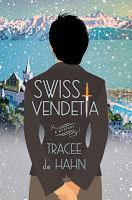
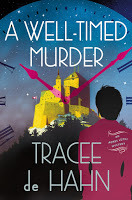 A Well-Timed Murder (St. Martins /Minotaur 2018) throws Agnes into the world of luxury watchmaking when a renowned watchmaker dies in suspicious circumstance in the days leading up to Baselworld, the world’s most prestigious watch and jewelry show. (Available now for pre-order)
A Well-Timed Murder (St. Martins /Minotaur 2018) throws Agnes into the world of luxury watchmaking when a renowned watchmaker dies in suspicious circumstance in the days leading up to Baselworld, the world’s most prestigious watch and jewelry show. (Available now for pre-order)
To learn more about Tracee, you can find her online by clicking on the following links: on Twitter on Facebook on Pinterest and on Instagram
THE BLOG POST
As a debut author, I’m often asked “Why this book? These characters? This setting?”
All fair questions.
Many, if not all, debut authors have a number of completed manuscripts under their belts. Some we would cringe to expose to the light of day, others simply didn’t make it to market. In my case, by the time I completed Swiss Vendetta I’d learned enough about the business of publishing to know that writing the book doesn’t mean ‘the end’ for the author. The day you think it’s done is the day that your agent and editor will have excellent ideas for further revisions. There might be several rounds of revisions with plot changes, re-balancing themes, and fine tuning of scenes. Eventually, a copy editor will want to tidy other details. Once the book is bound and released you’ll want to talk about it in bookstores and at conferences, and with book clubs and other local groups, and, of course, in blogs. Hopefully while writing the next book. In other words, publishing a book requires a commitment beyond merely finishing the manuscript. You will live with it daily for years, make sure you want to.
When I submitted Swiss Vendetta , I knew it had elements that would keep me interested in an ongoing series. At the core of this was the setting. My husband is Swiss and we lived in Switzerland for several years, dividing our time between Lausanne and Zürich. It is a relatively small country, idyllic in its beauty and, on the surface, perfect. I knew differently.
While the landscape and people are wonderful, no place is without malice and to write mysteries you need malice aplenty. With an eye toward seeding the countryside with murder, I surveyed the high mountains, very deep lakes, cosmopolitan cities and small, truly isolated villages. Switzerland has four official languages (German, Italian, French and Romansh) which sets the tone for a diverse culture even amongst longtime citizens. And, despite being landlocked, Switzerland is a cross roads. It is a manufacturing center for luxury goods, headquarters for banking, insurance and pharmaceutical companies, and is home to many international organizations, including the United Nations. Taking a look around, I was confident my choice of setting was an adequate seedbed for conflict small and large.
Place sets the tone for many of the books we love – from Louise Penny’s fictional Three Pines to Michael Connelly’s Los Angeles. In each place the terrain and the climate play a role. Who can imagine Connelly’s Mickey Haller anywhere but LA as he navigates the geographic, cultural and economic divides of that megalopolis? In my own writing, and in particular in Swiss Vendetta , place is a character. A castle darkened by a power outage isn’t welcoming despite the efforts of the inhabitants. A partially frozen lake becomes forbidding. Setting can’t be separated from story.
That’s why, for me, the setting comes first. Where did the crime take place and what kind of crime would happen there? I’ve often imaged the loneliness early settlers experienced on the American prairies. A wife, husband and children. The wind whistling across the plains, no near neighbors, wolves baying in the distance. Dread of the unknown. How did they cope with the isolation against all that vastness? Some didn’t. Firearms and farm tools were at hand. I’m certain that there were more acts of passionate rage and despair than we would care to know. Bodies buried and forgotten. With few neighbors, who would question a swift illness or tragic accident mentioned weeks or months after the fact?
Today, society is more connected. There are certainly more records kept and questions asked about any death. But the underlying passions continue, no matter how beautiful or wealthy the surroundings. I plan to take advantage of this for some time to come.
 Tracee de Hahn is author of the Agnes Lüthi mysteries, which were inspired by her years living in Switzerland. Prior to writing full time she practiced architecture and was head of university alumni relations at a major west coast university. Currently she and her husband live in southwest Virginia with their Jack Russell Terriers and Flemish Giant rabbit.
Tracee de Hahn is author of the Agnes Lüthi mysteries, which were inspired by her years living in Switzerland. Prior to writing full time she practiced architecture and was head of university alumni relations at a major west coast university. Currently she and her husband live in southwest Virginia with their Jack Russell Terriers and Flemish Giant rabbit.
Swiss Vendetta (St. Martins /Minotaur 2017) introduces police inspector Agnes Lüthi when she is called to investigate the death of an art appraiser on the lawn of a château near Lausanne. A blizzard descends, trapping her with the suspects of her first murder investigation, and casting her emotionally adrift as she struggles with her husband’s recent sudden death.

 A Well-Timed Murder (St. Martins /Minotaur 2018) throws Agnes into the world of luxury watchmaking when a renowned watchmaker dies in suspicious circumstance in the days leading up to Baselworld, the world’s most prestigious watch and jewelry show. (Available now for pre-order)
A Well-Timed Murder (St. Martins /Minotaur 2018) throws Agnes into the world of luxury watchmaking when a renowned watchmaker dies in suspicious circumstance in the days leading up to Baselworld, the world’s most prestigious watch and jewelry show. (Available now for pre-order)
To learn more about Tracee, you can find her online by clicking on the following links: on Twitter on Facebook on Pinterest and on Instagram
THE BLOG POST
As a debut author, I’m often asked “Why this book? These characters? This setting?”
All fair questions.
Many, if not all, debut authors have a number of completed manuscripts under their belts. Some we would cringe to expose to the light of day, others simply didn’t make it to market. In my case, by the time I completed Swiss Vendetta I’d learned enough about the business of publishing to know that writing the book doesn’t mean ‘the end’ for the author. The day you think it’s done is the day that your agent and editor will have excellent ideas for further revisions. There might be several rounds of revisions with plot changes, re-balancing themes, and fine tuning of scenes. Eventually, a copy editor will want to tidy other details. Once the book is bound and released you’ll want to talk about it in bookstores and at conferences, and with book clubs and other local groups, and, of course, in blogs. Hopefully while writing the next book. In other words, publishing a book requires a commitment beyond merely finishing the manuscript. You will live with it daily for years, make sure you want to.
When I submitted Swiss Vendetta , I knew it had elements that would keep me interested in an ongoing series. At the core of this was the setting. My husband is Swiss and we lived in Switzerland for several years, dividing our time between Lausanne and Zürich. It is a relatively small country, idyllic in its beauty and, on the surface, perfect. I knew differently.
While the landscape and people are wonderful, no place is without malice and to write mysteries you need malice aplenty. With an eye toward seeding the countryside with murder, I surveyed the high mountains, very deep lakes, cosmopolitan cities and small, truly isolated villages. Switzerland has four official languages (German, Italian, French and Romansh) which sets the tone for a diverse culture even amongst longtime citizens. And, despite being landlocked, Switzerland is a cross roads. It is a manufacturing center for luxury goods, headquarters for banking, insurance and pharmaceutical companies, and is home to many international organizations, including the United Nations. Taking a look around, I was confident my choice of setting was an adequate seedbed for conflict small and large.
Place sets the tone for many of the books we love – from Louise Penny’s fictional Three Pines to Michael Connelly’s Los Angeles. In each place the terrain and the climate play a role. Who can imagine Connelly’s Mickey Haller anywhere but LA as he navigates the geographic, cultural and economic divides of that megalopolis? In my own writing, and in particular in Swiss Vendetta , place is a character. A castle darkened by a power outage isn’t welcoming despite the efforts of the inhabitants. A partially frozen lake becomes forbidding. Setting can’t be separated from story.
That’s why, for me, the setting comes first. Where did the crime take place and what kind of crime would happen there? I’ve often imaged the loneliness early settlers experienced on the American prairies. A wife, husband and children. The wind whistling across the plains, no near neighbors, wolves baying in the distance. Dread of the unknown. How did they cope with the isolation against all that vastness? Some didn’t. Firearms and farm tools were at hand. I’m certain that there were more acts of passionate rage and despair than we would care to know. Bodies buried and forgotten. With few neighbors, who would question a swift illness or tragic accident mentioned weeks or months after the fact?
Today, society is more connected. There are certainly more records kept and questions asked about any death. But the underlying passions continue, no matter how beautiful or wealthy the surroundings. I plan to take advantage of this for some time to come.
Published on September 10, 2017 00:00
September 3, 2017
Debut Novelist Gustaf Berger: One Author's Relationship with Bookstores
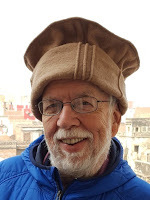 Happy to have ITW Debut Author Gustaf Berger as my guest blogger this week. Gustaf was born during WWII on the day the Japanese launched the first of their Kamikaze attacks on American warships.
Happy to have ITW Debut Author Gustaf Berger as my guest blogger this week. Gustaf was born during WWII on the day the Japanese launched the first of their Kamikaze attacks on American warships.By the time he was 44, he’d had two failed marriages, two distressed children, numerous affairs, and virtually no friends. He’d been kicked out of graduate school, fired from nine jobs, had gone through an addictive gambling phase, smoked marijuana all day, paid off buyers, policemen and insurance companies, never declared cash income on his taxes, and was heading toward his first bankruptcy – it got worse!
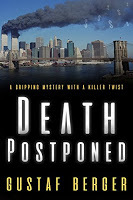 While he eventually grew beyond those youthful peccadillos, Berger continues to live life on his own terms. He ran a mail order business and moved from New York City to Boston 20 years ago, where he met the love of his life, his sweetheart and muse – as well as his first reader – Amika. Both retired, they read, write, and travel the world extensively.
While he eventually grew beyond those youthful peccadillos, Berger continues to live life on his own terms. He ran a mail order business and moved from New York City to Boston 20 years ago, where he met the love of his life, his sweetheart and muse – as well as his first reader – Amika. Both retired, they read, write, and travel the world extensively. He began writing eight years ago after his business went south during the recession. He’s never been happier. Six of his short stories have been published by literary journals. Death Postponed , which he worked on for five years (taking breaks to write three other books) is his first published novel. He looks forward to writing until he becomes physically unable to tap those keys.
As a Reader, I love Bookstores. As an Author…
I love bookstores. Couldn’t leave one without buying. That is, until my first novel was accepted for publication.
From the day I signed the contract, I studied book marketing, set up a website, began a newsletter, contacted local bookstores, ran Facebook promotions, and even paid for a Kirkus review – I wasted my time and money.
The day my masterpiece was released, over 3000 other titles came to market in the US. Same every day. Each year, more than one million new books join the existing 14 million available for sale. As an author with no fame, no platform, and few contacts – how could I compete? I asked my publisher what I should do – I assumed we had the same interest. Their advice: post on Facebook. I scaled back my expectations. At least I could sell locally. Thirty thousand artsy and erudite folks live in our city neighborhood, most within walking distance of a recently opened bookstore where I shopped, valuing the owner’s suggestions. That’s what’s special about local bookstores: knowledgeable advice, cozy surroundings, the thrill of discovery.
There was no bookstore in the small town where I grew up. We used the town library, a treasure with helpful and patient librarians.
Over the years since then, I’ve used libraries for research and bought most of my books from local stores and second-hand sellers, who were plentiful in NYC. I shopped at the original Barnes & Noble in downtown Manhattan (before they went national) and at the beautiful, landmark Scribner’s (1913-1989) in midtown. One can still spend hours perusing the 2.5 million new and used books at Strand Bookstore (1927) – the lone survivor from the 48 other bookstores that once surrounded it. Rising rents and competition did most of them in.
The book business tumbled forward. Barnes & Noble, Borders, and other chains pushed many small independents out of business. Book buying became more impersonal. Then Amazon, the monster we resent but can’t live without, exploded onto the web, crushing most competition. Now I download most books into my Kindle and shop at local bookstores for the occasional print version. As a consumer, I feel I get the best of both.
As an author, however, I feel betrayed. Four months before release date, I dropped by that local bookstore to announce my accomplishment. The owner, Pat (not actual name,) was sitting hunched over a computer screen behind a small table. A carefully curated collection of books fill the cozy space. Without looking up from her computer, she said, “Have your publisher send a review copy.” No warmth. No congratulations. Didn’t ask anything about the book. When I reminded her that I live in the neighborhood and I’m a customer, she said, “There are plenty of authors around here.” Phew. I stepped outside to thaw out. It didn’t end there.
After I received review copies, I again approached Pat. I was proud of the layout as well as the evocative cover of my 9/11-based twisty mystery. She said, “Leave me a copy. We’ll look at it.” I still haven’t gotten their review.
Pat told me they’d only order the book if one of their wholesalers listed it. There are three major book wholesalers: Ingram Content Group, Independent Publishers Group, and Baker & Taylor, who does carry it. But after she checked, she refused to stock the book even though all unsold copies are refundable.
The reason was strictly business. My book was print-on-demand and the resulting 25% discount – way below the typical 40 to 50% -- is too small for a bookstore to survive on. I understood that, so I gave her another option: I’d supply them with all the books needed and, after many months of selling, they just make one order from my publisher (at 46% discount) and pay me back with books. No risk. Pure profit. Pat said, “Too much trouble.”
In spite of the resistance, I asked if they would host a book release party. I assured them a healthy turnout; we’ve lived here for years and know a lot of people.
“Nope. Booked up all spring.”
Pat did agree to special order books if people asked for them, but she didn’t even put the review copy on display.
I also e-mailed the book buyer of a large independent bookstore five miles away, enclosing a press release and reviews, letting her know I was a customer too. I sent the first e-mail a month before the release, another upon release, and a third a month later. No response. I called the store manager and she took seven copies on consignment, meaning they’d pay me for whatever books they sold, returning the rest.
For my release party I chose a local restaurant that has a tiny music and book store in the rear. They were easy to deal with, and it was a great success. Sixty people came, thirty-three books sold, and the store kept copies for future sales. They had no problem ordering from my publisher.
To date, Pat has sold 16 copies to people I’d sent to her store. She did nothing to earn it. Not only was she rude to me personally, she made a terrible business decision. If she had worked with me, her total sales to date (6 months) would be over 50 copies at a gross profit of $350. (50x$7.00) With no money invested. If she sold every book they carry that well, her profits would be well over one million dollars. (est. 3000 books x 50 x $7.00.) In her wildest fantasies!
I stopped shopping at her store.
The Bad News for WritersIt’s unrealistic to expect bookstores to carry yours, except on consignment. Depending on the category, a bookstore stocks one in a hundred to one in a thousand of available titles. 2007 was the peak selling year for books. Demand has declined significantly since then, but twice as many books are being published. The average sale for a book in its first year is under 200 copies. And that includes every bestseller. The median sale is closer to 100 copies. Keep your hopes high, your expectations low, and good luck.
Gustaf Berger, author of Death Postponedgberger2@comcast.net
www.gustafberger.com
Published on September 03, 2017 00:00
August 27, 2017
Author David McCaleb on the Craft of Writing
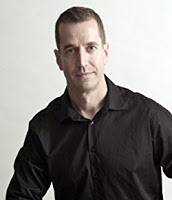 This week's guest blog is from ITW Debut Author David McCaleb. David writes the national bestselling RedOps series, which began with Recall and continued with Reload.David McCaleb is a thriller author, humorist, entrepreneur, business owner, veteran, USAFA grad, proud husband, and father. His experiences include a stint in bullet manufacturing, patenting an environmentally safe oil-changing system for cars, Air Force officer, and insurance agent. He started, built, and sold businesses. Though he enjoys drawing, painting, and the work of hands, his chosen tool is the pen.
This week's guest blog is from ITW Debut Author David McCaleb. David writes the national bestselling RedOps series, which began with Recall and continued with Reload.David McCaleb is a thriller author, humorist, entrepreneur, business owner, veteran, USAFA grad, proud husband, and father. His experiences include a stint in bullet manufacturing, patenting an environmentally safe oil-changing system for cars, Air Force officer, and insurance agent. He started, built, and sold businesses. Though he enjoys drawing, painting, and the work of hands, his chosen tool is the pen.
Enrich Your Writing with Sound
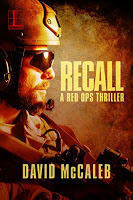 To be an effective writer, one must be a student of their craft. And sometimes lessons come unexpectedly. Recently I enjoyed a paint night in our hometown. These are entertaining events hosted by an artist that leads attendees through creating a basic painting. I had already started one of a lonely, round hay bale laying in a mown field at sunset. I brought my reference photo, so I knew exactly what I wanted to put on canvas. However, no matter how carefully I blended colors and applied them, the outcome resembled a pre-school finger painting. Turns out there are methods to the art. Layering pigments like sedimentary rock. Applying a base, then lowlights, highlights, and timing of the application. How to properly mix colors, dip the brush, and stroke them upon the surface.Writing is no different. You may have your scene’s movie reel spinning in your head, or be familiar with the emotions your character is experiencing, but if you don’t apply them correctly to the page, the result will be muddy and boring. Or as in the case of my hay bale, even juvenile. Sound is an under-utilized aspect of our writing craft. I think of it as a special kind of brush stroke. Vision tends to be our most powerful sense and therefore is provided the most space upon the page. But highlights and lowlights render dimension and bring depth to our scenes.
To be an effective writer, one must be a student of their craft. And sometimes lessons come unexpectedly. Recently I enjoyed a paint night in our hometown. These are entertaining events hosted by an artist that leads attendees through creating a basic painting. I had already started one of a lonely, round hay bale laying in a mown field at sunset. I brought my reference photo, so I knew exactly what I wanted to put on canvas. However, no matter how carefully I blended colors and applied them, the outcome resembled a pre-school finger painting. Turns out there are methods to the art. Layering pigments like sedimentary rock. Applying a base, then lowlights, highlights, and timing of the application. How to properly mix colors, dip the brush, and stroke them upon the surface.Writing is no different. You may have your scene’s movie reel spinning in your head, or be familiar with the emotions your character is experiencing, but if you don’t apply them correctly to the page, the result will be muddy and boring. Or as in the case of my hay bale, even juvenile. Sound is an under-utilized aspect of our writing craft. I think of it as a special kind of brush stroke. Vision tends to be our most powerful sense and therefore is provided the most space upon the page. But highlights and lowlights render dimension and bring depth to our scenes.
 In order to write about sound, you need to study it. Simply put, practice listening. So often, we skate across life like a frozen winter pond. Instead, we need to cannonball into it like a cool summer lake. To do so, one must stop and observe. One must listen. On the train on the way to work. During your morning routine. A veteran author once told me that writers perceive the world differently. I say not differently, but truly. Concentrate on what comes to your ears. This morning before I wrote this article, I sat on our porch and closed my eyes. I heard the electric buzz of insects hitting the screen, the rush of air through leaves, the scrape of our dog’s claws as she settled next to my chair, the chirp, warble, and wail of countless mocking birds, cardinals, and sparrows, the splash of water over rocks, the rolling grind of a distant airliner, the droning whirr of a humming bird just outside our screen, and an occasional hum of distant tires on pavement. And there are always sounds our brains take for granted. It takes practice to notice them, but these are the nuggets that can anchor a reader in your story. This morning, it was the liquid burble as I blew across the surface of my coffee. Why hadn’t I ever noticed that before?
In order to write about sound, you need to study it. Simply put, practice listening. So often, we skate across life like a frozen winter pond. Instead, we need to cannonball into it like a cool summer lake. To do so, one must stop and observe. One must listen. On the train on the way to work. During your morning routine. A veteran author once told me that writers perceive the world differently. I say not differently, but truly. Concentrate on what comes to your ears. This morning before I wrote this article, I sat on our porch and closed my eyes. I heard the electric buzz of insects hitting the screen, the rush of air through leaves, the scrape of our dog’s claws as she settled next to my chair, the chirp, warble, and wail of countless mocking birds, cardinals, and sparrows, the splash of water over rocks, the rolling grind of a distant airliner, the droning whirr of a humming bird just outside our screen, and an occasional hum of distant tires on pavement. And there are always sounds our brains take for granted. It takes practice to notice them, but these are the nuggets that can anchor a reader in your story. This morning, it was the liquid burble as I blew across the surface of my coffee. Why hadn’t I ever noticed that before?
 Now, if I did my job right, you have in mind a generic image of my porch and back yard, but the majority of my description was sound. Think how vivid an image it could be if other sensory layers had already been applied.And like any other art, application is key. Just because you hear something doesn’t mean you throw it haphazardly onto your page and Presto! Instant depth. Author David Poyer has repeatedly told me, “The first word that comes to mind is never the right word.” Good writing only looks easy to the reader. But we know it is difficult. Even laborious. Don’t waste your reader’s attention. Anything you place on the page should have meaning. It should flesh out characters, propel the plot, and enrichen the experience. Put another way, don’t waste words.
Now, if I did my job right, you have in mind a generic image of my porch and back yard, but the majority of my description was sound. Think how vivid an image it could be if other sensory layers had already been applied.And like any other art, application is key. Just because you hear something doesn’t mean you throw it haphazardly onto your page and Presto! Instant depth. Author David Poyer has repeatedly told me, “The first word that comes to mind is never the right word.” Good writing only looks easy to the reader. But we know it is difficult. Even laborious. Don’t waste your reader’s attention. Anything you place on the page should have meaning. It should flesh out characters, propel the plot, and enrichen the experience. Put another way, don’t waste words.
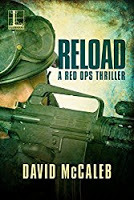 “The hum of tires on pavement.” Really? Did you let me get away with that? Yawn. How cliché. Is your character feeling oppressed? Then try, “The grind of tires…” Maybe your protagonist is on the run through a forest from a wet team. She pauses in a ditch next to a lonely country road and hears the approaching growl of tires. Just by inserting a descriptive sound, we’ve reinforced the image of a predator and hinted that she sees herself as prey. Even if your reader doesn’t make the connection consciously, subconsciously it will carry meaning. Remember, good writing is hard work.Much of this is applicable to other senses as well. Sight, touch, smell, taste, and even emotions. So practice. Jump into that lake, smell the musk of decaying leaves, study the moon’s glare upon the surface, feel the pinch of minnows nibbling your toes, and experience life as only a writer may. Then, put it on paper.
“The hum of tires on pavement.” Really? Did you let me get away with that? Yawn. How cliché. Is your character feeling oppressed? Then try, “The grind of tires…” Maybe your protagonist is on the run through a forest from a wet team. She pauses in a ditch next to a lonely country road and hears the approaching growl of tires. Just by inserting a descriptive sound, we’ve reinforced the image of a predator and hinted that she sees herself as prey. Even if your reader doesn’t make the connection consciously, subconsciously it will carry meaning. Remember, good writing is hard work.Much of this is applicable to other senses as well. Sight, touch, smell, taste, and even emotions. So practice. Jump into that lake, smell the musk of decaying leaves, study the moon’s glare upon the surface, feel the pinch of minnows nibbling your toes, and experience life as only a writer may. Then, put it on paper.
Published on August 27, 2017 00:00

